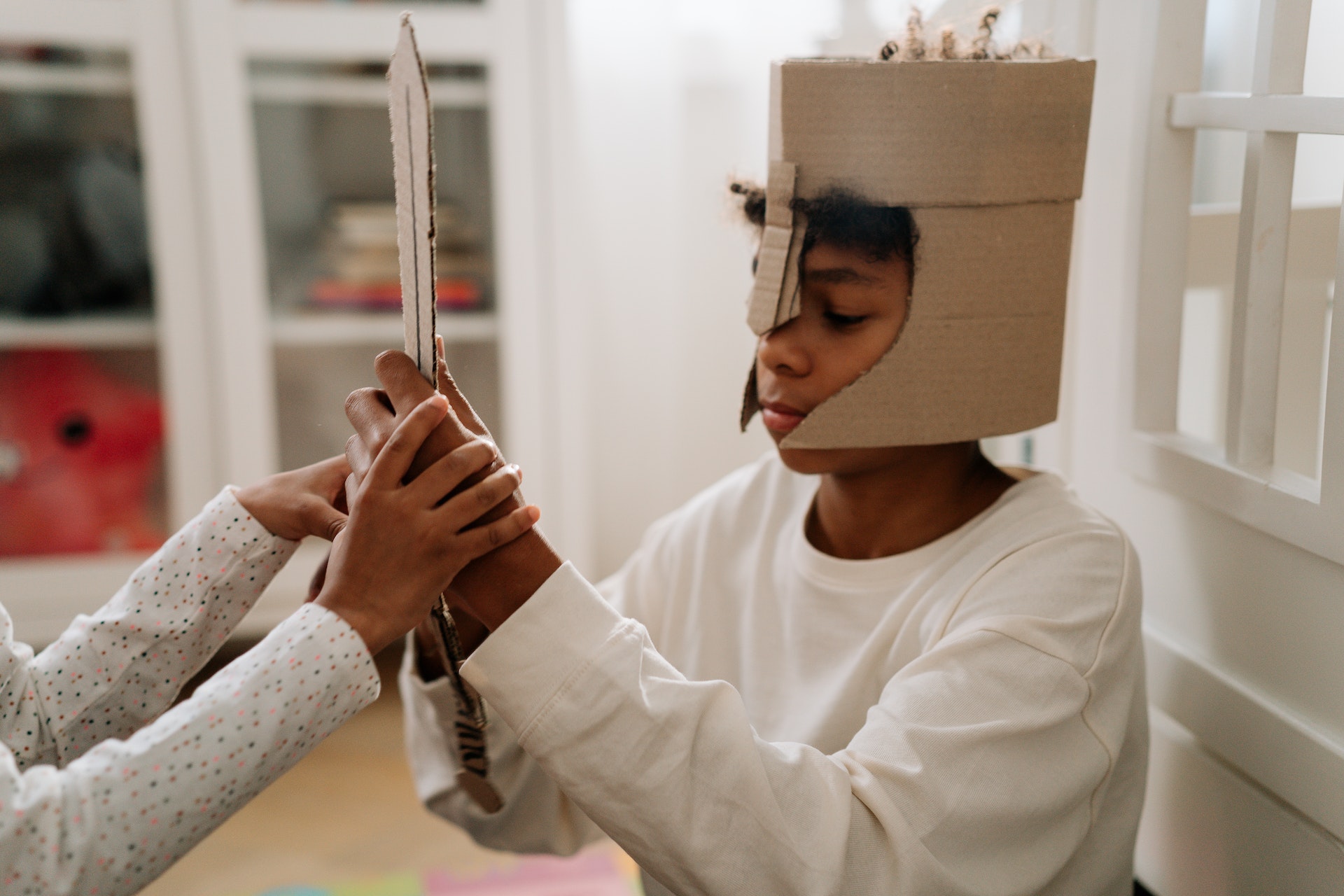How To Keep Your Child Happy and Healthy
10 min read
Last Modified 9 July 2025 First Added 4 August 2023

As a parent, you want what’s best for your child, but in today’s fast-paced and often chaotic world, it can be challenging to prioritise their health and happiness.
It’s up to us to create a nurturing environment where our little ones can flourish, both physically and emotionally, but where do we start?
In this article we will explore various aspects of keeping your child happy and healthy, from exercise and ways of encouraging healthy eating, to prioritising sleep and helping them to manage stress.
By instilling healthy habits and providing opportunities for physical activity when children are young, we are helping them to embrace a healthy lifestyle that will benefit them throughout their lives.
Helping children to be strong and active is essential for their overall well-being.
A balanced diet is crucial, ensure they have regular meals consisting of nutritious food, and encourage healthy snacking by offering wholesome foods such as fruits, vegetables, wholegrain crackers, cheese etc.
There are a range of toys that can help your child learn about cooking and healthy eating such as play kitchens and food sets.
In addition to a healthy diet, it’s important to keep children physically active in enjoyable ways. Outdoor toys and activities provide a breath of fresh air and opportunities for exploration, as well as that all important exercise.
Encourage children to participate in sports that interest them, whether it’s football, swimming, dancing, or martial arts. Walking or biking to school instead of driving is another way to promote physical activity, and also has the added bonus of reducing pollution.
Small changes make a big difference, such as opting for the stairs instead of the lift or escalators, and turn daily tasks into fun activities by incorporating movement, like dancing while doing chores or playing active games indoors on rainy days.
Limiting screen time will make it easier to encourage children outside to play and keep them engaged and moving ideas can include slides, swings and trampolining.

Sufficient and restful sleep contributes to children’s physical and cognitive development, emotional well-being, overall mood, and performance throughout the day.
Establishing a bedtime routine can help signal to their bodies that it’s time to wind down and prepare for sleep. This routine could include activities such as reading a book or having a warm bath.
Consistency is key, as it helps to regulate the internal sleep-wake cycle. Limiting screen time before bed is really important, as the blue light emitted by devices with screens can interfere with the production of melatonin, a hormone that regulates sleep.
Encourage children to turn off their devices at least an hour before bedtime and replace screen time with calming activities such as drawing and colouring or listening to soothing music.
Creating a comfortable sleep environment for your child is equally important. Ensure that their bedroom is cool, quiet, dark and free from distractions. Sleep aids, such as soft toys and night lights can help your child feel comfortable and secure at bedtime.
Stress can affect your child’s physical and mental health, so managing it is vital and encouraging open communication is key.
Create a safe and non-judgemental space where your child feels comfortable expressing their fears and worries.
Listen attentively, help them understand that being worried is a normal emotion, and provide reassurance. Establishing predictable routines can provide a sense of security and stability which helps to reduce anxiety.
If your child is nervous about a big transition that’s coming up, such as starting school, provide as much information about it as you can and make visits prior to their start date so they feel prepared and comfortable about it.
Sensory toys like stress balls can be useful to calm children when anxious or stressed, helping them to feel centred and allowing them to ‘reset’. It’s really powerful when you share your own coping strategies with your child, so resist the urge to pretend everything is perfect and you don’t get stressed. Instead, talk to your child about what you find stressful and what you do to calm down and look after your mental health.

By teaching your child good hygiene practices, you are equipping them with lifelong habits that will help them to stay healthy and reduce their risk of illness for them and those around them.
One of the most helpful habits to instil is proper hand washing. Lead by example and teach your child to wash their hands thoroughly with soap and water for at least 20 seconds, especially before eating, after going to the toilet, and after playing outside. Make it fun by singing a song or using colourful soaps.
It is also important to teach your child to cover their mouth and nose with their elbow or a tissue when they cough or sneeze to avoid spreading germs.
Make sure your child receives all recommended vaccinations and screenings. If your child is anxious about medical visits, kids fancy dress-up toys like a doctor’s kit or home role play toys can help make them more comfortable when they experience the real thing.
Creativity and imagination are powerful tools that can help to promote a child’s well-being. From boosting cognitive development and problem-solving skills to promoting emotional resilience and social connections. Encouraging children to be creative and imaginative will help shape them into happier and healthier individuals.
Arts and crafts allow children to unleash their imagination as they experiment with colours, textures and materials, giving them a sense of accomplishment and boosting self-esteem. Parents can provide children with a variety of art supplies and materials, such as paint sets, Play Doh, collage materials etc, to spark their curiosity and encourage them to try different activities and techniques.
Children should be free to experiment, make mistakes and learn from the process, with no strict rules or expectations. There are a range of arts and crafts toys, from paint pens and jumbo chalks to clay kits.
Reading regularly with your child from a young age is not only important for expanding their vocabulary and igniting an interest in reading, but by giving them your time and full attention it shows them that they matter, which builds self-esteem, gives comfort and security, and feeds their imagination.
Through stories, children can be transported to different worlds, introduced to diverse characters and encouraged to explore new ideas and perspectives.
As children get older and become capable of reading on their own, they can choose books that pique their interests, and being interested in the subject matter will encourage them to read more. Discussing stories after reading them is also really helpful for children as conversations about characters, narratives and themes help them to develop emotional intelligence.
The Early Learning Centre has a range of books for young children to ignite their interest such as cloth books, musical books and water colouring books.
Pretend play and role-play allow children to unleash their creativity and imagination.
Engaging in these activities allows children to ‘rehearse’ for real-life by exploring different roles and experimenting with scenarios.
They are also free to create their own imaginary worlds, which helps with cognitive development, social skills and emotional development.
Providing your child with a selection of props and fancy dress-up toys gives them prompts for imaginative storytelling and helps bring their ideas to life. Parents joining in with the imaginative play will enhance the experience for their child, by becoming active role models and making it more fun, which also strengthens the parent-child bond.

Strong family relationships are built by families who enjoy spending time with one another and communicate successfully. Try declaring family game night once a week. Each week a different family member gets to choose which game is played.
Board games, card games or garden games are not only fun, but also a great opportunity for bonding, sharing thoughts and engaging in conversations.
A good way to get your child interested in taking part is to find a game that appeals to their interests. There is a game for just about every theme and interest there is, so there’s sure to be something that your child will be keen to play.
Social connections are vital for your child’s mental health and development. Encourage them to make friends and participate in social activities, such as play dates or clubs.
Role play sets and board games are great for social play with friends and help children develop a range of important skills such as communication, sharing, turn-taking and a sense of fairness.
Maintaining strong relationships with loved ones who live far away will contribute to your child’s sense of belonging to a broader network of love and support.
Encourage frequent communication through phone calls, video calls, or messaging apps, scheduling regular times for these to create a sense of routine and anticipation. Sharing updates about their lives with distant loved ones by sending drawings, photos or letters will keep them updated on their activities and milestones.
Encouraging your child to listen to stories or look at old photos with their loved ones will help them to learn about their family history, strengthen their sense of identity and deepen the connection with their extended family.

Playing outdoors has many physical and psychological benefits for children. The extra space and freedom it provides, gives children the opportunity to have adventures and to explore in a way that’s not possible indoors.
Through these experiences, children develop many essential skills, connect with the natural world, and create lasting memories of their childhood adventures.
Natural settings have a calming effect on the mind and help us to feel relaxed and happy. Exposure to sunlight increases serotonin levels, a neurotransmitter associated with mood regulation which can help alleviate symptoms of anxiety and depression.
Outdoor play also provides an opportunity for children to release pent-up energy, while the freedom to explore, take risks, and play in an unstructured way helps them to develop a sense of confidence and resilience.
Family walks, picnics, bike rides, exploring the woods or playing on the beach are all wonderful ways to enjoy being outside, while also spending quality time together as a family.
The great outdoors can be enjoyed in all seasons; there’s no such thing as bad weather, only unsuitable clothing. So when the weather is wet or cold children should still be encouraged to venture outside, if they are dressed appropriately.
Go on a leaf hunt in the autumn or a muddy welly walk in the winter; there’s always something fun to do outside.
Remember, when playing outside in the warmer months, children and babies’ skin is much more sensitive to the sun than adult skin.
Children under six months should be kept out of direct strong sunlight, and from March to October children should cover their skin with suitable clothing including a hat, spend time in the shade, particularly from 11am to 3pm, and wear a sunscreen of at least SPF30.
Sunscreen should be applied twice before going out; 30 minutes before going out and again just before going out, on all exposed skin including the face, neck and ears. It needs to be reapplied liberally and frequently, according to the manufacturer’s instructions.
As parents and caregivers, we have a huge influence over our children’s health and happiness, but by incorporating the tips we have outlined, you can help your child to grow into a healthy, happy and resilient individual.
However, every child is unique, and what works for one may not work for another. Be patient and flexible, and don’t hesitate to seek professional help if you have concerns about your child’s health, development or happiness.